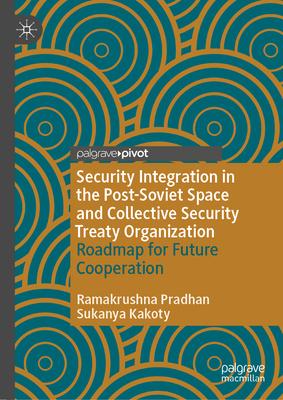This book explores the role of the Central Security Council (CSTO) in ensuring regional security, analyzing the evolution of cooperation between post-Soviet states since the Soviet Union's demise. It focuses on the establishment of the CSTO as a regional organization since 2002, with six out of 11 CIS members. The book fills a gap in existing research on the security paradigm in post-Soviet space and the collective security mechanism of CSTO. Many western scholars have not understood the importance of multilateralism and Russia's foreign policy in maintaining security measures in the post-Soviet space. The book is an informative handbook on regional integration, Eurasianism, and CSTO for students, scholars, readers, academicians, and researchers working on this area.

Security Integration in the Post-Soviet Space and Collective Security Treaty Organization: Roadmap for Future Cooperation
This book explores the role of the Central Security Council (CSTO) in ensuring regional security, analyzing the evolution of cooperation between post-Soviet states since the Soviet Union's demise. It focuses on the establishment of the CSTO as a regional organization since 2002, with six out of 11 CIS members. The book fills a gap in existing research on the security paradigm in post-Soviet space and the collective security mechanism of CSTO. Many western scholars have not understood the importance of multilateralism and Russia's foreign policy in maintaining security measures in the post-Soviet space. The book is an informative handbook on regional integration, Eurasianism, and CSTO for students, scholars, readers, academicians, and researchers working on this area.